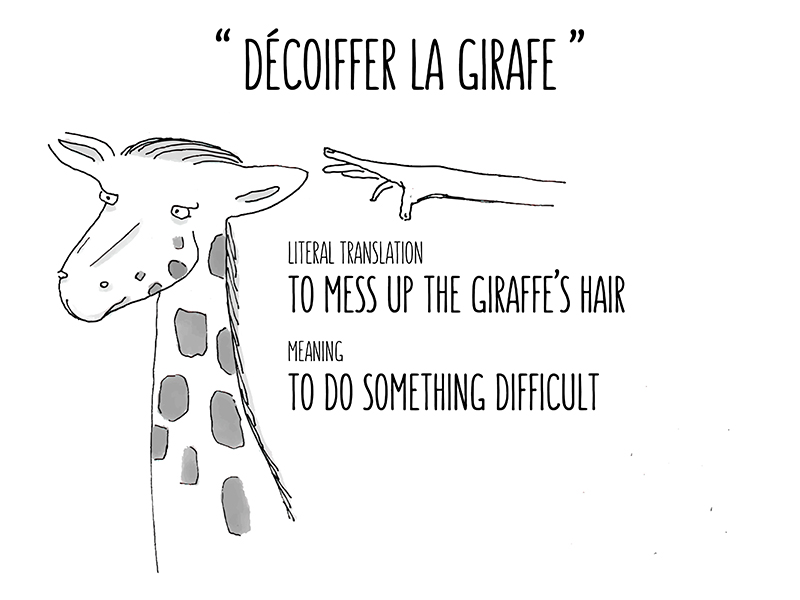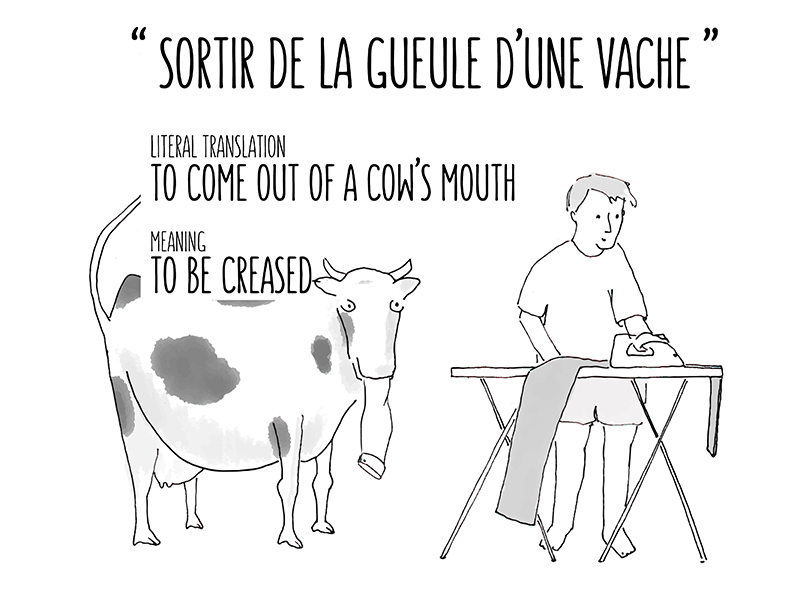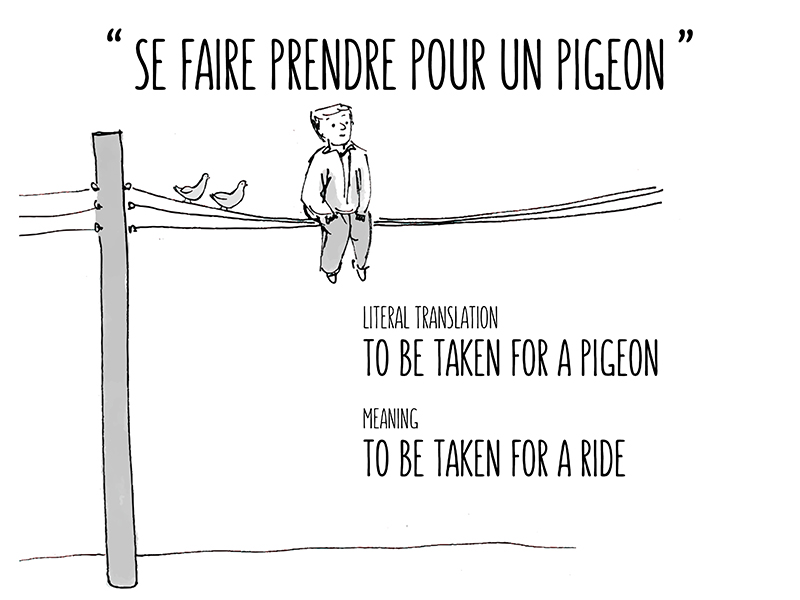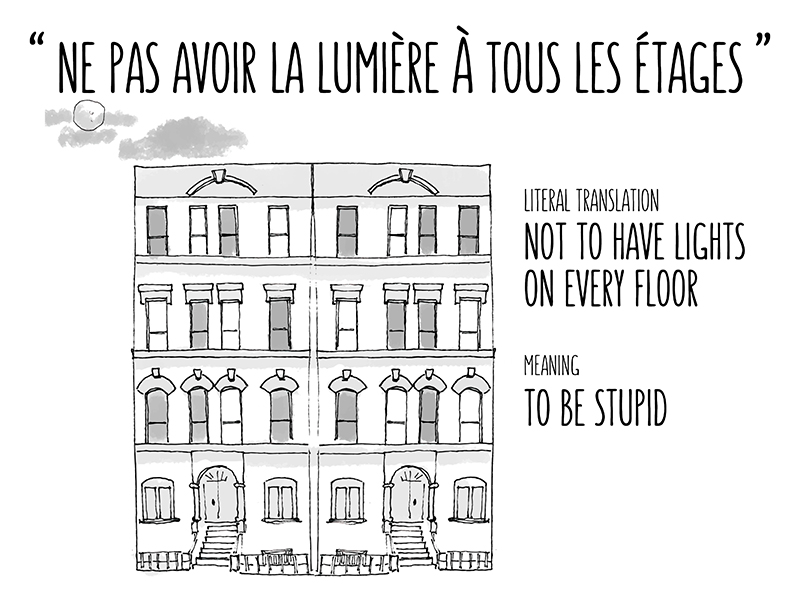Other Cats to Whip? Learning French Idioms With a Delightful Book.
 What's so great about learning idioms in another language? An idiom is a characteristic expression whose meaning does not relate to the literal meaning of the words in it.
What's so great about learning idioms in another language? An idiom is a characteristic expression whose meaning does not relate to the literal meaning of the words in it.
So, here's what idioms can do for you: They take you right into the foreign mindset and give you a different taste of a language and culture. They make you sound like a native. They help you fit in.
Knowing some common idioms helps you to understand and participate in conversations. But ... you must also learn to pronounce an idiom correctly. And, you have to use the idiom in the right context.
We were recently provided with a free copy of the eBook: Other Cats to Whip - The Book of French Idioms by its authors, Zubair Arshad and Graham Clark. For anyone striving beyond a basic knowledge of French, this book is an enjoyable resource.
Its French title “D'autres chats à fouetter” translates to “Other fish to fry,” but an embarrassing mispronunciation of the French title – can you guess? - lies at its core.
Graham Clark describes in the book's introduction how he tried to drop the French title phrase into a conversation with his boss in Marseille. Whoops ... The book's authors are therefore serious about their warning: “Enjoy these idioms, but just be careful how you use them!”
So, do you dare to learn these idioms?
The Set-up
The book gives you 40 common French idioms, each presented with a funny, memorable cartoon illustration. Then, for each idiom, you see two essential vocabulary items, plus the literal and the idiomatic translation in English. And, for each idiom you get a sentence that uses it in a conversational context.
Here are four features of the book that are especially helpful for language learning:
LEARNING WITH IMAGES
Many idioms say something about human foibles or characteristic human behavior. Because of that, an idiom tends to evoke a vivid image. That in itself is fun, but the image also helps you to remember the expression.
Not surprisingly, many of the images in this book involve animals, 18 of the 40 to be exact. Animals are just wonderful dramatic subjects that let us hold a humorous mirror to our ourselves. But you'll also find idioms with food images (not a surprise either), and those that contain parts of the body or commonplace objects.
The clever and funny illustrations, created by Ruxandra, pick up the literal meaning of the images, and these truly will stay in your mind.
For example, the expression "décoiffer la giraffe" (literally, to mess up the giraffe's hair), means "to do something difficult".
Think about it, considering the giraffe's height and hairstyle, and keeping the cartoon in mind, will you ever forget this expression now?
 LEARNING VOCABULARY
LEARNING VOCABULARY
For each of the idioms, you are given two basic items of vocabulary. So, as a minimum, you'll have 80 words, mostly nouns and verbs. You'll learn these naturally, as they show up in context, and not categorized as in a French grammar book
You'll learn a wide range of common verbs, such as “s'occuper” (to mind, take care of), “tirer” (to pull), “craindre” (be afraid of), “sortir” (to go out), “tomber” (to fall), etc. and everyday nouns such as “échelle” (ladder), “haricot” (bean), “gueule” (slang for mouth, face), “huître” (oyster), “ours” (bear), etc.
Above all, you'll learn that the literal translation of an idiom may be potentially funny, but not especially helpful for the meaning. Sometimes guessing the meaning can really lead you astray.
Consider the expression “sortir de la gueule d'une vache” (literally, to come out of the mouth of a cow), which, for example when referring to a shirt, means “to be creased or wrinkled.” Would you have guessed that one if it came up in a conversation?
LEARNING IDIOMATIC GRAMMAR
In the collection of expressions and the sentences in which they are used, you'll see a variety of grammatical structures. Again, you'll learn these as they come up and not as part of a grammar paradigm.
The grammar in the  English translation is often quite different from the grammar in the French original. Because of that, you'll tend to internalize the whole of the French idiom - grammar and all - as a chunk of vocabulary.
English translation is often quite different from the grammar in the French original. Because of that, you'll tend to internalize the whole of the French idiom - grammar and all - as a chunk of vocabulary.
Just look at these sentences which use idioms in context: "L'appartement est trop cher, tu te fais prendre pour un pigeon. " (The apartment is too expensive, you're being taken for a ride.) Or: "Tu ne peux pas aller au travail come ça, mon chérie, ta chemise est sortie de la gueule d'une vache !" (You can't go to work like that darling, your shirt is all creased!)
Thus by acquiring the structures of a series of idioms, you're also learning essential conversational grammar.
LEARNING LANGUAGE IN CONTEXT
When using an idiom, you have to be absolutely sure that you understand what it means and that you're using it in the correct context. Some expressions are more informal or slangy than others, so be careful of that, too.
Different languages use different images for corresponding idioms. The image at the center of an idiom in one language may have different connotations in another language.
In other languages, for example, the informal French expression “ne pas avoir la lumière à tous les étages” (literally, not to have lights on every floor; meaning: to be stupid) translates into rather different images.
In English, you say “to have a screw loose.”
In Spanish, you might say “faltar un tornillo” (to be short of a screw).
In Italian, it's “mancare una rotella” (to be missing a small wheel).
In German, you would say “nicht alle Tassen im Schrank haben” (not to have all cups in the cupboard).
Would you have guessed any one of those right off the bat?
“Other Cats to Whip - The Book of French Idioms” will surely make you laugh and learn some French. I think it's a perfect gift for anyone learning or teaching French!
Purchase Options
The book is available for The paperback book is shipped from the UK. The most economical option (including shipping) for the US audience is to buy through the author's website. The paperback book is also available on amazon.co.uk and amazon.com. The eBook version is available on the author's website as well as on amazon.co.uk and amazon.com.
Disclosure: Gamesforlanguage.com has no business relationship with the book's authors other than having received a free eBook. See our Privacy Policy and Terms of Use for further details.
